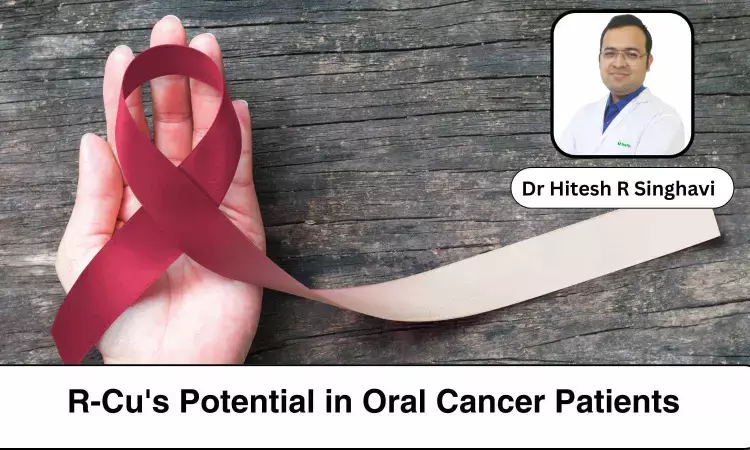- Home
- Medical news & Guidelines
- Anesthesiology
- Cardiology and CTVS
- Critical Care
- Dentistry
- Dermatology
- Diabetes and Endocrinology
- ENT
- Gastroenterology
- Medicine
- Nephrology
- Neurology
- Obstretics-Gynaecology
- Oncology
- Ophthalmology
- Orthopaedics
- Pediatrics-Neonatology
- Psychiatry
- Pulmonology
- Radiology
- Surgery
- Urology
- Laboratory Medicine
- Diet
- Nursing
- Paramedical
- Physiotherapy
- Health news
- Fact Check
- Bone Health Fact Check
- Brain Health Fact Check
- Cancer Related Fact Check
- Child Care Fact Check
- Dental and oral health fact check
- Diabetes and metabolic health fact check
- Diet and Nutrition Fact Check
- Eye and ENT Care Fact Check
- Fitness fact check
- Gut health fact check
- Heart health fact check
- Kidney health fact check
- Medical education fact check
- Men's health fact check
- Respiratory fact check
- Skin and hair care fact check
- Vaccine and Immunization fact check
- Women's health fact check
- AYUSH
- State News
- Andaman and Nicobar Islands
- Andhra Pradesh
- Arunachal Pradesh
- Assam
- Bihar
- Chandigarh
- Chattisgarh
- Dadra and Nagar Haveli
- Daman and Diu
- Delhi
- Goa
- Gujarat
- Haryana
- Himachal Pradesh
- Jammu & Kashmir
- Jharkhand
- Karnataka
- Kerala
- Ladakh
- Lakshadweep
- Madhya Pradesh
- Maharashtra
- Manipur
- Meghalaya
- Mizoram
- Nagaland
- Odisha
- Puducherry
- Punjab
- Rajasthan
- Sikkim
- Tamil Nadu
- Telangana
- Tripura
- Uttar Pradesh
- Uttrakhand
- West Bengal
- Medical Education
- Industry
New Research Explores R-Cu's Potential in Oral Cancer Patients- Dr Hitesh R Singhavi

Researchers from ACTREC, the research wing of Tata Hospital, are looking at a breakthrough in oral cancer treatment. This breakthrough can help make the treatment process more manageable with less pain and potentially reduce the spread of the disease.
While still in their early stages, these studies explore the potential of a combination of naturally occurring compounds, resveratrol and copper (R-Cu), to address two significant challenges in cancer treatment: harsh side effects and uncontrolled spread.
Combating the Side Effects of Oral Cancer Treatment
The first study done by the researchers focused on the potential of R-Cu to mitigate the often debilitating side effects associated with potent chemotherapy, particularly in the case of multiple myeloma.
While chemotherapy effectively targets cancer cells, it can leave patients grappling with side effects like mouth sores, nausea, and vomiting. This study investigated whether R-Cu could act as a "sponge" by absorbing debris released from dying cancer cells that are believed to contribute to these unpleasant side effects.
The results were promising, as patients receiving R-Cu alongside their chemotherapy sessions experienced significantly fewer and milder side effects.While this is an exciting initial finding, it's crucial to remember that this is an early-stage study with a small sample size, requiring further investigation to confirm its efficacy and understand its long-term effects.
Targeting and Reducing the Spread of Cancer in Patients
The second part of the study delved deeper into the potential of R-Cu in the fight against oral cancer. While traditional treatment methods like surgery, radiation, and chemotherapy are effective in removing or controlling tumors, there are concerns that they might unintentionally contribute to the spread of cancer through tiny DNA fragments called cfChPs (cell-free chromatin particles).
These fragments can travel through the bloodstream and potentially "seed" healthy tissues, promoting further cancer growth. This study explored whether R-Cu could act as a "weed-killer," preventing cfChPs from spreading and harming healthy cells.
The findings showed that R-Cu treatment significantly reduced cfChPs in tumors from patients with oral cancer. Additionally, the reduction in cfChPs was linked to a boost in the body's immune system, potentially offering a double benefit by hindering cancer spread and enhancing the body's natural defences against cancer cells.
What is the way forward?
These early-stage studies offer a compelling glimpse into the potential of R-Cu as a non-toxic approach to managing cancer treatment side effects and potentially fighting the spread of oral cancer.
However, managing expectations and emphasizing the need for further research is crucial. These studies require more extensive trials to confirm R-Cu's long-term safety and efficacy before it can be considered a standard treatment option.
Currently, standard treatment protocols remain the recommended course of action for cancer patients. While discussing this research with your doctor can enhance your understanding of potential future options, it's important to remember that this is still an evolving study area.
In conclusion, as with any new research, it's also essential to be cautious and avoid drawing definitive conclusions at this stage. If you have any questions or concerns related to your situation, consult with your healthcare professional.
While these studies offer a spark of hope, much work is still needed to determine how best to integrate these findings into the overall landscape of cancer treatment.
Disclaimer: The views expressed in this article are of the author and not of Medical Dialogues. The Editorial/Content team of Medical Dialogues has not contributed to the writing/editing/packaging of this article.
Dr Hitesh R Singhavi, BDS, MDS (Oral & Maxillofacial Surgery), is a Consultant Head and Neck Surgeon at Fortis Hospital Mulund with nine years of experience in Oral Oncology. Dr Hitesh R Singhavi has a keen interest in treating Cancer patients and Cancer research, with a special interest in Preventive Oncology, Head and Neck Cancer Treatment, Oral cancer rehabilitation, Clinical Research in Head and Neck, and Cancers Community Outreach Programs.


